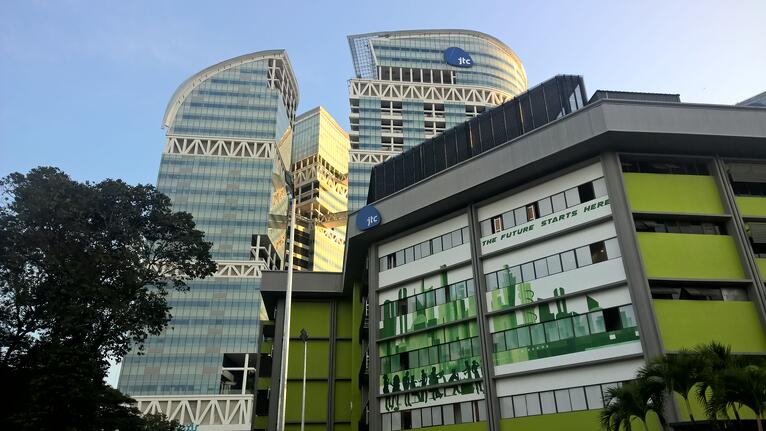Central Midori has close ties with Singapore’s startup hub, which is ranked 17th globally by Startup Genome (top five include Silicon Valley, London, NYC, Beijing and Boston) and fifth in Asia (top four include Beijing, Shanghai, Tokyo and Seoul).
Rankings are based on the following metrics: Performance, funding, market reach, talent and experience, connectedness and knowledge.
Evidently, Singapore has been cultivating its startups well in terms of the aforementioned factors. In today’s article, we will be discussing just how it has been able to cultivate this ecosystem, the current startup ecosystem landscape, and sectors of particular importance.
Driving Forces Behind Singapore Startup Ecosystem
Singapore’s successful startup ecosystem is largely the result of strong government support. While the Singaporean government does offer some form of support funds, the government mainly supports startups through educational programmes, real estate, and infrastructure initiatives, writes the World Bank. These funds and programmes are mainly organized by the government’s Startup SG initiative, under Enterprise Singapore, launched in 2017.
According to the Startup SG website, programmes include the Global Innovation Alliance (a network of “Singapore and overseas partners in major innovation hubs and key demand markets”), Centers of Innovation (tech lab facilities and training courses for SMEs), Deal Fridays (“a platform for dealmaking opportunities” for fintech companies), Launchpad (R&D environment that involves higher education and research institutions), among others.
Startup SG prioritizes strong inter-company networks, learning, and partnerships. The National University of Singapore, as Startup SG’s knowledge partner, and Tech in Asia, Action Community for Entrepreneurship, E27, and JTC, as Startup SG’s community partners, are especially important in fostering inter-company networks, learning, and partnerships.
Current Singapore Startup Ecosystem Landscape
In addition to these government-supported programmes, startups have relatively easy access to venture capital funding. The World Bank reports that Singapore is a regional leader in venture capital activity. This is again due to the government playing an active role in the sector, a means to replace multinational corporations’ role as the main financier of Singaporean startups.
As a result, Singapore now has 4,016 active startups, 215 incubators and accelerators, and 895 investors under the Startup SG umbrella, according to Startup SG. To note, an incubator is a combination of shared office spaces and business support services (e.g., training, coaching, mentorship) while an accelerator is a short-term business support programme.
Twelve startups have since gained unicorn status. For example, the transportation service company Grab now has a valuation of approximately USD 40 billion and, following a merger with SPAC Altimeter Growth Corp, will be going public, according to Startup Genome. Acronis (Cyberseucirty), Lazada (E-commerce), Ninja Van (Supply chain and logistics), Razer (Gaming), Sea Limited (Gaming), Advanced AI (Fintech), are among the other twelve startups.
Important Sectors in Singapore Startup Ecosystem
Above all else, tech-related startups have been heavily prioritized. “Keeping in line with the government’s historic industrialization approach, the government is supporting specific sectors, including a growing emphasis on deep-tech sectors. In this regard, the public sector is taking a lead role in beginning the specialization process, which could ultimately incentivize the private sector to follow suit,” writes the World Bank.
This is further evidenced by the 2020 definition of “Startup” offered by Enterprise Singapore. Startups refer to tech entities that “Have innovative technologies with the potential to disrupt existing industries.”
Of the fifteen startups CNBC cites as the “Top 15 Start Ups to Work For in Singapore,” most startups revolve around innovative technologies such as artificial intelligence, e-commerce, or information technology. Startup Genome reports other sectors of particular importance at the moment include the fintech sector, cleantech sector, and agriculture tech and new food sector. More and more incubator and accelerator programmes have been created to support startups in these sectors.
What It Means For You
The Singapore startup ecosystem has come a long way. Through strong governmental support, the Singapore startup ecosystem has become a dynamic and highly innovative ecosystem built around tech-related companies.
Evidently, the Singapore startup ecosystem is an incredibly supportive and productive environment for startups. However, this ecosystem is arguably evident of the larger Singaporean economy’s conduciveness to businesses.

